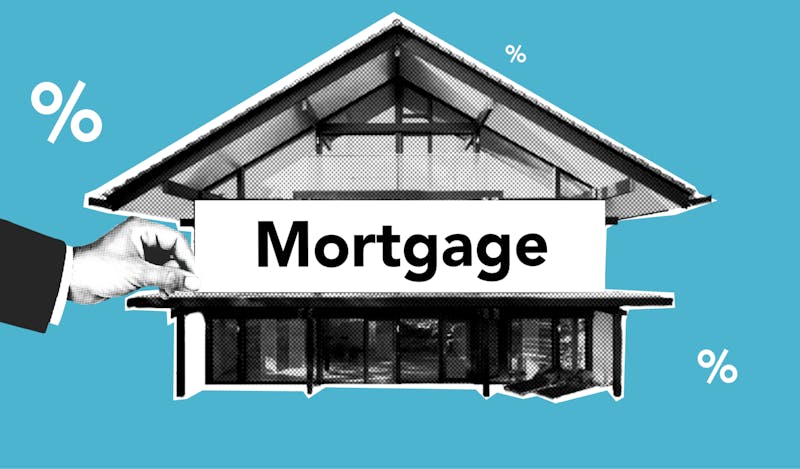According to the government of Alberta, a mortgage associate makes an average of $75,982 annually, higher than the median Canadian and Albertan salaries. The mortgage associate job is also something people tend to feel good about doing – you’re helping individuals and families become homeowners, sometimes for the first time. And you’re doing it in a way that helps people find the best lender for their particular circumstances. It’s a great job that’s both rewarding financially and emotionally. And the best part is, you only need a mortgage associate licence in Alberta to start!
While obtaining the licence requires some work, the good news is that it’s also relatively easy. In this brief guide, we’ll show you the nine easy steps to becoming a licensed mortgage associate in Alberta.
Ready to get started? Let’s go!
Step 1: Learn What a Mortgage Associate Does
Before getting too deep into the licensing aspect, it’s first essential to learn what a mortgage associate’s job entails.
Mortgage associates act as licensed intermediaries between lenders and homebuyers. As a mortgage associate, you will not be lending any of your own money; instead, you’ll be assessing other people’s finances and seeing if there is a suitable mortgage product for their situation.
Consider the following example. Let’s say someone wants to apply for a mortgage with ok, but not great, credit. This person can apply directly to banks, risking rejection or lousy interest rates. And, as they apply directly to the banks, they may be lowering their credit score. Or, they can contact a mortgage associate (working for a mortgage broker) and have their credit run just once. The mortgage associate can review lending options from banks, credit unions, and other financial institutions, selecting the best product for their needs.
Therefore, a mortgage associate’s job solves two issues: it helps streamline the lending process for banks (who have brokers pre-vet potential borrowers), and it allows borrowers access to the best lending product for their situation. It truly is a win-win!
Step 2: Confirm Your Eligibility for a Mortgage Associate Licence in Alberta
Assuming that becoming a mortgage associate sounds like a good career path, you must confirm your eligibility to obtain a licence.
The Real Estate Council of Alberta (RECA) issues these licences and requires that anyone interested in becoming a mortgage associate or broker must meet the following qualifications:
- Applicants must be at least the age of majority (18).
- Applicants must be eligible to study and work in Canada legally.
- All applicants must have government-issued identification (driver’s licence, passport, etc.).
- Applicants must have at least a high school education in Canada or equivalent.
- Lastly, applicants must be proficient in English. In Alberta, proficiency in French is not a requirement.
If you meet the eligibility requirements listed above, you can move on to the following step! If not, you’ll need to work on completing the above criteria before you can proceed further.
Step 3: Complete the Application Process with the RECA
Once you’ve determined that you are eligible to become a mortgage associate in Alberta, the next step is to complete the application with the RECA.
You’ll first need to create an account with the RECA. MyRECA is the council’s account management page; you can create an account here.
Once you’ve created an account, three options are available, depending on your particular circumstances.
If you have a mortgage associate/broker licence in another jurisdiction, you may be eligible to complete a Labour Mobility application. You can complete this application if you already have a licence in BC, Saskatchewan, Manitoba, New Brunswick, Nova Scotia, Ontario, or Quebec.
If you do not have an existing licence but have any issues that may appear on a background check, you can address these through a Suitability Review. Example issues you may want to disclose as early as possible include being charged with a criminal offence, filing bankruptcy, having a judgment due to fraud or breach of trust, and receiving disciplinary action from a professional association.
Finally, suppose you don’t have any previous issues that may prevent you from successfully applying for your licence, and you don’t have a licence from another reciprocal jurisdiction. In that case, you can apply for a new one! You’ll need to provide evidence for each eligibility requirement listed in the previous step.
All RECA applications cost $350, so if you need a suitability review, you’ll pay $700 total ($350 for the suitability review and $350 for the actual application).
Once your application (or applications, depending on your circumstances) receive approval, you can proceed to the next step!
Steps 4 & 5: Complete Two Courses
You will need to complete two courses to receive your mortgage associate licence in Alberta.
The good news is that both programs have a relatively high program success rate (~70% or higher). However, you should know that these courses are not trivial and require genuine study.
Step 4: The Fundamentals of Mortgage Brokerage
Administered by the Alberta Mortgage Brokers Association, this course provides an overview of what mortgages mean in Canada and Alberta. It is a self-paced program, and you’ll have nine months to complete the course from the start date. You can pay a fee if you need to extend your available time.
The Fundamentals of Mortgage Brokerage aims to touch upon all the required competencies defined by the RECA. In particular, you’ll learn about the following:
- Real estate terminology
- Mortgage terminology
- Mortgage products
- Credit analysis
- What the role of the RECA is
- Commercial vs. residential loans
- Compliance with the law
- Insurance
- Contracts and disclosures
- Ethical requirements
And many more concepts! In short, this course will give you all the foundational theoretical knowledge you’ll need to work as a mortgage associate.
This course costs $1,500 (plus GST). You will also need a Canadian Qualifier Plus calculator, which costs $70 if you order it from the AMBA website. However, if you go online, you can buy one for less.
Once you have completed this course, you can take the first pre-licensing exam from the RECA (must be done within three months). You must take and pass this exam to go on to the next course.
Step 5: The Practice of Mortgage Brokerage
As you may have already guessed, this course builds upon the previous one. Like the other course, this one is also courtesy of the AMBA, and it takes many of the concepts discussed previously and puts them into more practical terms. While the previous course is theoretical, this explains what you’ll need to know to succeed as a mortgage associate.
Some of the topics you’ll learn about in this course include:
- Comparing mortgage products
- Analyzing and assessing risk
- Finding and maintaining clients
- Understanding amortization schedules
- Preparing a mortgage application (including what documents are necessary)
- Understanding concepts like debt service, holding periods, and mortgage default
- Private lending
- Regulatory requirements
- Qualifying a buyer
- Calculating principal and interest payments, as well as the loan-to-value ratio (LTV)
Of course, many other vital concepts exist in this course, but this is a sample of what you’ll learn.
Like the previous course, The Practice of Mortgage Brokerage costs $1,500 plus GST. You will need a Canadian Qualifier Plus calculator for this course, but assuming you bought one for the previous lesson, you can use the same one for this course.
And, like the previous course, once you have completed it, you’ll need to register and take the final pre-licensing exam with the RECA. You’ll have three months to take that licensing exam from when you finish this course.
Step 6: Provide a Criminal Background Check
With those courses out of the way, you’ll need to provide a criminal background check to the RECA. In particular, the RECA looks for a Certified Criminal Record Check (CCRC, for short).
If you have never needed to provide a criminal background check (and most people haven’t), you should know that there are two ways to provide this information.
First, you can contact a private, accredited fingerprint agency. You can search online to find a suitable agency and go to their offices to have your fingerprints taken.
The other option is to contact your local law enforcement division, which can also perform this check.
No matter which option you choose, the outcome is the same. The law enforcement agency or the accredited fingerprint agency will take your fingerprints and forward them to the RCMP in Ottawa. The RCMP will then compare those fingerprints to a national repository of Canadian criminal records.
If you have reason to believe that the RCMP would find a match, disclose why in the Suitability Review (back in step 3) to avoid issues at this stage. After all, if the RECA declines your application after finding problems with your criminal background check, you’ll be out over $3,000 in fees! If those issues come up in step 3, you’ll only be out a few hundred.
Once the RECA approves your background check, you’re getting close to becoming a mortgage associate!
Step 7: Become Employed by a Mortgage Brokerage
The next step is to find employment! You have all the classroom training necessary to be a mortgage associate. You’ve proven to the RECA that you meet all the qualifications and are of good moral character.
However, you’re still not quite a mortgage associate. You don’t have the license to be one just yet.
Mortgage licensing works a little bit counterintuitively in this regard. To apply for your formal license from the RECA, you must have employment as a mortgage associate. In other words, you’ll need to find a licensed brokerage in Alberta and have them hire you. You’ll need a formal employment contract.
There are no special tips for finding a job with a brokerage that wouldn’t apply to most jobs. When looking for brokerages, remember that you’re not merely looking for a single job – you’re looking for the best place to launch your new career. As such, it’s essential to find a company that is supportive and willing to teach you the “ropes” to help you succeed. After all, the better you do as a mortgage associate, the better the brokerage does as a whole!
If you want a starter list of questions to ask a prospective brokerage, look at the document the RECA provides on this subject. It contains valuable information to help you discover the perfect place to launch your new career!
Step 8: Apply for Your Mortgage Associate Licence Alberta
At last, you are finally ready to apply for your mortgage associate licence in Alberta!
The actual licence costs $475 + $100 towards an assurance fund. However, there are some instances where these fees can be significantly higher, depending on whether the brokerage is on any boards or belongs to any memberships.
This process can be rapid. The brokerage begins an application in their myRECA account based on your username within the system. Once they initiate the process, you’ll need to complete your portion of the application. Afterwards, you’ll submit your section back to the broker. The broker will review your application and decide if they want to approve it.
Assuming they do, you or the brokerage will pay the licensing fee (depending on what you agreed to as part of your employment with the brokerage). Once the RECA receives the payment, you will have a valid mortgage associate license!
Step 9: Work as a Mortgage Associate in Alberta
Of course, the last (and final) step is to do the work as a mortgage associate!
Fortunately, being a mortgage associate in this province is a high-reward endeavour with many perks. Once you’ve made it this far, you’ll undoubtedly enjoy working to help people realize their dreams of homeownership!
Mortgage Associate Licence Alberta: A Recap
Becoming a mortgage associate is an exciting, rewarding career that genuinely adds a positive impact on customers. People utilize mortgage brokers to help them become homeowners with mortgage products that are accessible and affordable for them. And, in the process, mortgage associates receive an excellent salary! Plus, if you dream of being your own boss one day, you can always become a mortgage broker after a minimum of two years in the industry.
Becoming a mortgage broker costs about $3,500 (assuming the brokerage pays the licensing fee). The time it takes to become one depends mainly on how fast you can study and pass the two courses, as well as how quickly you can find employment. If you have a full-time job already and are looking to become a mortgage associate, you may need six months or more to learn everything and pass the two exams. If you have more time to dedicate to studying, you might be able to get your licence faster!
Ultimately, choosing to be a mortgage associate is a fantastic career decision. If you’re interested in becoming an associate, please follow the nine steps outlined in this article. They represent the fastest, easiest way to launch your new career!



